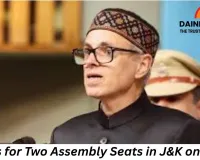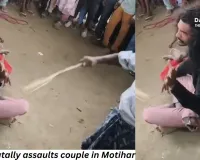'We Will Remove Every Infiltrator from India,’ Says Amit Shah: Understanding Who They Are and How They Differ from Migrants
Digital Desk

Union Home Minister Amit Shah has reiterated the Centre’s commitment to identifying and removing all “infiltrators” from India, reigniting debate over the distinction between infiltrators, migrants, and refugees. His remarks come amid ongoing government measures to tighten immigration laws and enhance border enforcement.
The Supreme Court, too, in a May 2025 ruling, underscored India’s position on unauthorized entrants, observing that “with a population of 140 crore, India cannot become a dharamshala (free shelter) for people from other countries.” The court clarified that the “right to residence is reserved for Indian citizens” and does not extend to foreigners.
In official terms, infiltrators are defined as individuals who enter India illegally—without valid documents or authorization often for unlawful settlement or activities that may compromise national security. By contrast, migrants are those who move voluntarily for economic or social reasons, while refugees flee persecution, conflict, or disaster and are protected under international law, including the 1951 UN Refugee Convention.
Until recently, India governed foreign nationals under multiple legislations, including the Citizenship Act (1955) and Foreigners Act (1946). In April 2025, these were consolidated into the new Immigration and Foreigners Act, creating a unified legal framework.
However, India still lacks a comprehensive refugee policy, resulting in varied treatment of groups such as Tibetans and Sri Lankan Tamils. As of mid-2023, the country hosted over 2.1 lakh refugees and asylum seekers from neighbouring nations and conflict zones.
In Assam, where Foreigners’ Tribunals determine citizenship, more than 1.59 lakh individuals have been declared “foreigners” since 2018, though only a few hundred have been deported. The gap between declarations and deportations highlights the legal and humanitarian complexity of defining “infiltrators” in India, an issue deeply entangled with politics, law, and human rights











